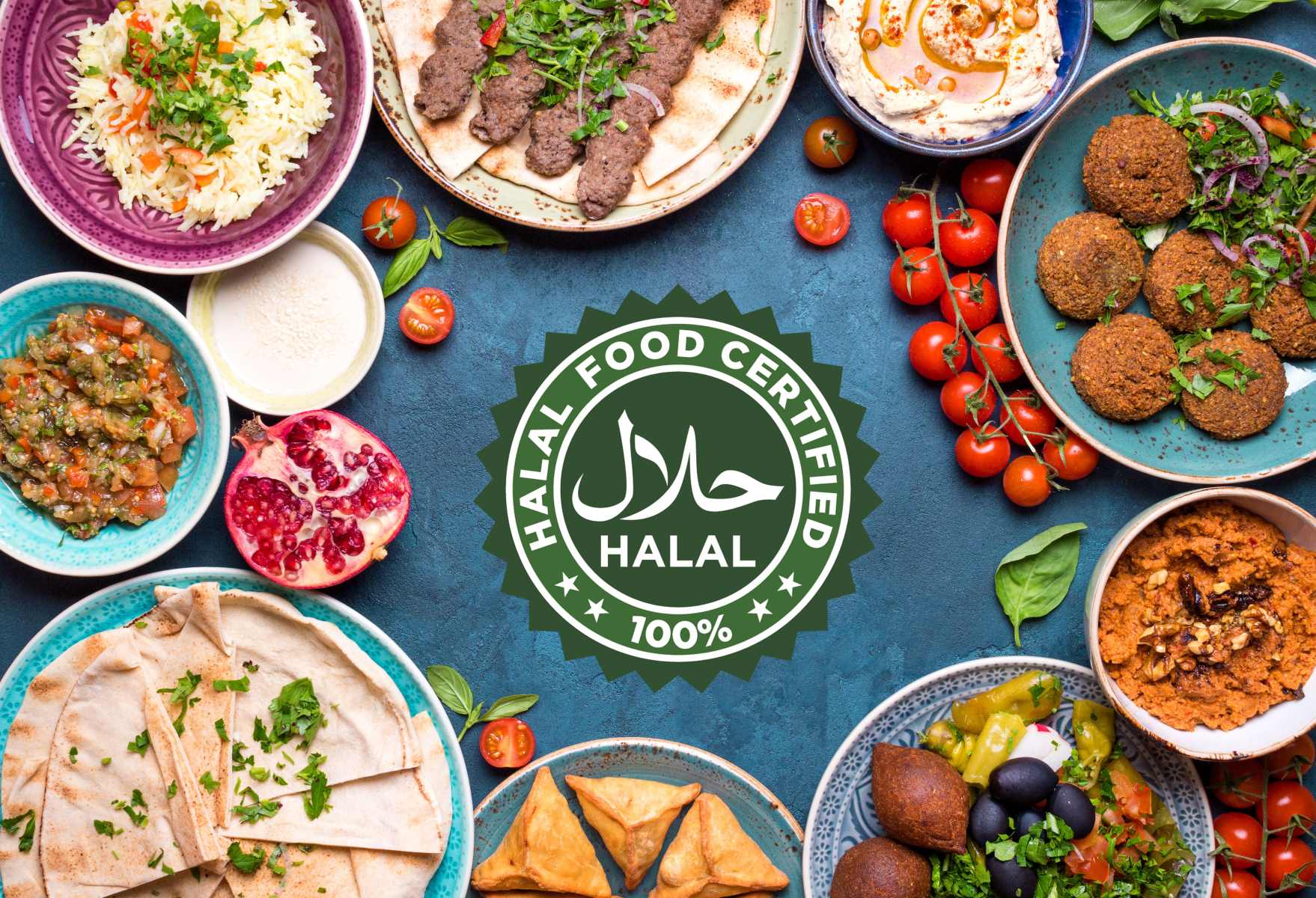Home>Food and Cooking>The Truth About E635 Halal Certification


Food and Cooking
The Truth About E635 Halal Certification
Modified: April 1, 2024
Discover the facts about E635 Halal Certification and its impact on food and cooking. Learn more about the truth behind this controversial topic.
(Many of the links in this article redirect to a specific reviewed product. Your purchase of these products through affiliate links helps to generate commission for Regretless.com, at no extra cost. Learn more)
Table of Contents
Introduction
E635, also known as disodium 5'-ribonucleotides, is a flavor enhancer commonly used in processed foods. Its primary function is to intensify the savory taste of food products, often referred to as umami, which is one of the five basic tastes alongside sweet, salty, sour, and bitter. This flavor enhancer is frequently found in snacks, soups, sauces, and other packaged foods to elevate their taste profiles.
The use of E635 has sparked discussions and debates, particularly within the context of halal certification. Halal, an Arabic term meaning "permissible," refers to foods that are prepared and consumed according to Islamic dietary laws. For a product to be considered halal, it must adhere to specific guidelines and standards set forth by Islamic dietary regulations.
In recent years, the inclusion of E635 in food products has raised concerns among consumers, particularly those seeking halal-certified options. This has led to a closer examination of the sources and processes involved in the production of E635, as well as its compliance with halal standards.
As the demand for halal-certified products continues to grow globally, the scrutiny surrounding E635 and its halal status has become increasingly significant. Consumers are seeking transparency and assurance regarding the ingredients used in the foods they consume, prompting a closer look at the implications of E635 in the context of halal certification.
Amidst the ongoing discussions and controversies, it is essential to delve deeper into the nature of E635, the criteria for halal certification, and the underlying truths that shape the perceptions and decisions of consumers. By exploring these aspects, a clearer understanding of the complexities surrounding E635 and its halal certification status can be attained.
What is E635?
E635, also known as disodium 5'-ribonucleotides, is a flavor enhancer that falls under the category of food additives. It is commonly utilized in the food industry to intensify the savory taste of processed foods, contributing to the overall flavor profile of various culinary products. This flavor enhancer is renowned for its ability to enhance the umami taste, which is characterized by a savory, meaty flavor that adds depth and richness to food.
The production of E635 involves the extraction and isolation of ribonucleotides from natural sources such as yeast extracts, which are rich in nucleotides. These nucleotides serve as the building blocks of RNA (ribonucleic acid) and play a crucial role in cellular processes. Through a series of processing steps, disodium 5'-ribonucleotides are derived and incorporated into food products to enhance their taste.
In terms of its chemical composition, E635 is a sodium salt of guanosine 5'-monophosphate (GMP) and inosine 5'-monophosphate (IMP), which are naturally occurring nucleotides found in various foods. When used in combination, GMP and IMP synergistically amplify the savory taste of foods, making them more palatable and appealing to consumers.
E635 is commonly found in a wide range of processed foods, including snacks, instant noodles, soups, sauces, and seasoning blends. Its versatile application in the food industry has made it a popular choice for enhancing the flavor of convenience foods and culinary preparations.
While E635 has been recognized for its flavor-enhancing properties, its incorporation in food products has sparked discussions regarding its potential impact on health and dietary preferences. Additionally, the scrutiny surrounding its halal certification status has prompted a closer examination of its sources and production processes to address the concerns of consumers seeking halal-compliant options.
Understanding the nature and function of E635 is essential in evaluating its role in the food industry and its implications for consumers, particularly those with specific dietary considerations and preferences. By gaining insights into the properties and applications of E635, a more informed perspective can be developed regarding its use in food products and its relevance within the context of halal certification.
Halal Certification
Halal certification plays a pivotal role in the food industry, particularly for individuals adhering to Islamic dietary laws and seeking assurance regarding the consumption of permissible foods. The concept of halal extends beyond the mere absence of prohibited ingredients; it encompasses a comprehensive set of guidelines and principles governing the entire food production process. For a product to obtain halal certification, it must undergo rigorous scrutiny to ensure compliance with the prescribed standards.
The certification process involves thorough assessments of the ingredients, production facilities, and manufacturing practices to ascertain that they align with halal requirements. This includes verifying the sources of raw materials, examining the methods of food processing, and evaluating the overall integrity of the supply chain. Additionally, the avoidance of cross-contamination with non-halal substances is a critical aspect of halal certification, necessitating stringent measures to maintain the purity of halal products.
Certification bodies, often operated by Islamic scholars and experts in food science, oversee the evaluation and accreditation of products seeking halal certification. Their expertise enables them to discern the intricacies of food production and determine the adherence of products to halal standards. By obtaining halal certification, food manufacturers demonstrate their commitment to catering to the dietary needs of Muslim consumers and upholding the principles of halal integrity.
The significance of halal certification extends beyond religious observance; it encompasses considerations of food safety, hygiene, and ethical practices. Halal-certified products are held to a high standard of quality and purity, reflecting the meticulous attention to detail in their production. This assurance of compliance with halal requirements instills confidence in consumers, affirming the suitability of the products for consumption within the framework of their faith-based dietary preferences.
The demand for halal-certified products has surged globally, driven by the increasing awareness and preference for halal-compliant options among diverse consumer segments. This trend has propelled food manufacturers to pursue halal certification for their products, recognizing the value it adds to their market accessibility and consumer trust. As a result, the availability of a wide range of halal-certified foods has expanded, catering to the dietary needs and preferences of Muslim consumers worldwide.
In essence, halal certification serves as a symbol of authenticity, integrity, and adherence to the principles of halal in food production. It embodies the commitment to upholding religious dietary requirements while promoting transparency and trust within the food industry. As the demand for halal-certified products continues to grow, the emphasis on halal certification remains a cornerstone of assurance for consumers seeking food products aligned with their faith-based dietary choices.
Controversy Surrounding E635
The utilization of E635, also known as disodium 5'-ribonucleotides, has been accompanied by controversy, particularly within the context of its halal certification status. One of the primary sources of contention arises from the extraction and isolation of ribonucleotides, which are often derived from natural sources such as yeast extracts. While these sources are rich in nucleotides, the process of obtaining disodium 5'-ribonucleotides has raised concerns regarding its compliance with halal standards.
The controversy surrounding E635 stems from the potential presence of non-halal substances in the extraction process, leading to uncertainties about its adherence to Islamic dietary laws. This has prompted scrutiny and deliberation among consumers, particularly those seeking halal-certified options, as they seek clarity on the origins and production methods of E635. Additionally, the lack of transparency in disclosing the specific sources of ribonucleotides has contributed to the controversy surrounding its halal status.
Furthermore, the multifaceted nature of E635, which serves as a flavor enhancer in a wide array of processed foods, has amplified the controversy. The pervasive presence of E635 in packaged snacks, soups, sauces, and seasonings has raised questions about the consumption of these products within the framework of halal dietary principles. The discernment of whether E635 aligns with the criteria for halal certification has become a focal point of discussion, prompting consumers to seek assurances regarding the halal status of products containing this flavor enhancer.
The controversy surrounding E635 intersects with broader discussions about food additives, transparency in labeling, and the intersection of dietary preferences with religious observance. It reflects the complexities inherent in navigating the modern food landscape, where consumers are increasingly mindful of the ingredients in the products they consume. As such, the controversy surrounding E635 underscores the significance of transparency, ethical sourcing, and clear communication regarding the halal status of food additives, aligning with the principles of halal certification.
Amidst the controversy surrounding E635, there exists a need for clarity, transparency, and informed decision-making for consumers seeking halal-certified options. Addressing the concerns and uncertainties surrounding the halal status of E635 necessitates a comprehensive understanding of its production processes, sources, and implications within the context of Islamic dietary laws. By shedding light on the controversy and engaging in open dialogue, the path towards resolving the complexities surrounding E635 and its halal certification status can be navigated with greater awareness and clarity.
The Truth Behind E635 Halal Certification
The truth behind E635's halal certification status lies in the intricate evaluation of its sources, production processes, and compliance with Islamic dietary laws. At the heart of this truth is the discernment of whether E635 aligns with the stringent criteria set forth by halal certification standards, addressing the concerns of consumers seeking halal-compliant food options.
The production of E635 involves the extraction and isolation of ribonucleotides, which are derived from natural sources such as yeast extracts. This extraction process has been a focal point of scrutiny, as it necessitates a thorough examination of the sources of ribonucleotides to ensure their adherence to halal requirements. The transparency and integrity of these sources play a pivotal role in determining the halal status of E635, reflecting the fundamental truth that underpins its certification.
Furthermore, the meticulous assessment of the manufacturing processes involved in obtaining disodium 5'-ribonucleotides is essential in ascertaining its halal compliance. This scrutiny encompasses the avoidance of cross-contamination with non-halal substances, the adherence to ethical production practices, and the preservation of the purity of halal products throughout the entire production chain. The truth behind E635's halal certification status hinges on the assurance of its alignment with these critical aspects of halal integrity.
In addressing the truth behind E635's halal certification, transparency and clarity regarding its sources and production methods are paramount. Consumers seeking halal-certified options are inherently guided by a desire for authenticity, ethical sourcing, and adherence to religious dietary principles. By unraveling the truth behind E635's halal certification, a foundation of trust and assurance can be established, empowering consumers to make informed choices aligned with their faith-based dietary preferences.
Ultimately, the truth behind E635's halal certification status encompasses a comprehensive evaluation of its origins, processing, and implications within the context of Islamic dietary laws. It embodies the commitment to transparency, integrity, and ethical sourcing, serving as a testament to the conscientious consideration of halal principles in the production of food additives. By illuminating the truth behind E635's halal certification, the path towards clarity and assurance for consumers navigating the complexities of halal dietary choices can be paved with transparency and integrity.
Read more: Five Guys: The Truth About Their Halal Meat
Conclusion
In conclusion, the discourse surrounding E635 and its halal certification status encapsulates a multifaceted landscape shaped by the complexities of food production, dietary preferences, and religious observance. The journey of unraveling the truth behind E635's halal certification has unveiled the pivotal role of transparency, ethical sourcing, and adherence to halal standards in the evaluation of food additives. It has also underscored the significance of informed decision-making and clarity for consumers seeking halal-certified options.
The controversy surrounding E635 has prompted a deeper examination of the sources and production processes involved in obtaining disodium 5'-ribonucleotides. This scrutiny has illuminated the need for clear communication and transparency regarding the halal status of food additives, aligning with the principles of halal certification. The truth behind E635's halal certification lies in the meticulous assessment of its origins and production methods, emphasizing the integrity and adherence to halal requirements throughout the entire production chain.
As the demand for halal-certified products continues to grow globally, the significance of halal certification as a symbol of authenticity, integrity, and adherence to religious dietary principles cannot be understated. The assurance of halal compliance instills confidence in consumers, affirming the suitability of products for consumption within the framework of their faith-based dietary choices. It also reflects the commitment of food manufacturers to cater to the diverse dietary needs and preferences of consumers, fostering trust and transparency within the food industry.
In navigating the complexities surrounding E635 and its halal certification, the pursuit of clarity and informed decision-making remains paramount. By shedding light on the truth behind E635's halal certification, a foundation of trust and assurance can be established, empowering consumers to make informed choices aligned with their faith-based dietary preferences. The journey towards transparency, integrity, and ethical sourcing in the realm of halal-certified products serves as a testament to the evolving landscape of food production and the conscientious consideration of dietary preferences and religious observance.
In essence, the truth behind E635's halal certification reflects the convergence of ethical sourcing, transparency, and adherence to halal standards, shaping the narrative of consumer empowerment and informed choices within the realm of halal dietary preferences. This truth serves as a guiding beacon for consumers seeking halal-certified options, illuminating the path towards clarity, assurance, and trust in the foods they choose to embrace within the framework of their faith-based dietary principles.














